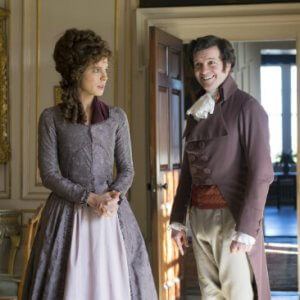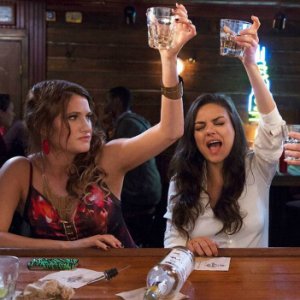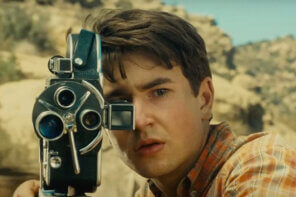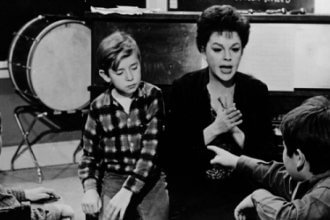A couple of films were released this summer, and they did not have a Giant Beam of Light extending from the sky to the earth. I was pretty sure I wasn’t the only person who would have observed it, and alas, I am not. This guy calls the Giant Beam of Light the “cargo shorts of the summer movie season,” but that’s not fair. Giant Beams of Light been cargo shorts for years, no matter the season.
But, let’s just agree: for all of Hollywood’s gatekeepers who are quick to explain that writing scripts is only for the real writers, who understand the craft, who live in LA, the known quantities with real gifts…you sure, brah?
Those titans of writing have the mighty Giant Beam of Light in (at least): Man of Steel, Suicide Squad, Avengers, (The New) Ghostbusters, let alone (The Old) Ghostbusters (II) (I’m going to give Temple of Gozer a pass, since it’s kind of a giant staircase), and then perhaps the Grandaddy Giant Beam Of Light — Independence Day (above). Let me slow-clap all you guys for envisioning the world’s end in identical fashion.
I’m hereby demanding that Cinema Faith make a call for other instances of Giant Beams of Light, because I know more are out there, and the fans love this plot device. Hollywood said so.
Whit Stillman Delivers
Love and Friendship is so entirely unlike its fellow summer releases that there is not a single Beam of Light, giant or otherwise, in the entire film. The film is based on a never-published Jane Austen novella, Lady Susan, writer/director Whit Stillman fashioned into a screenplay…
Stillman, the celebrated writer of Barcelona, Metropolitan (for which he received an Oscar nomination), and The Last Days of Disco, has found another home for his brand of almost-wholly conversational storytelling and wit. For those of you looking to crib an intelligent film conversation, you can’t go wrong by referring to Stillman’s work, which recently has become a boxed set by the esteemed Criterion Collection.
 Stillman’s gifts are evident in Love and Friendship — awardscircuit.com has the film as a top 10 pick for an adapted screenplay Oscar nod — but even Stillman can’t overcome the limitations of his source material. There’s a reason Austen’s novella went unpublished. The film plays like a bunch of nameless, faceless characters (Stillman seems to recognize the story’s plight by simply introducing characters in expositional character stills) all serving up slow pitch batting practice for Lady Susan (played by Kate Beckinsale) and Sir James Martin (played by Thomas Bennett).
Stillman’s gifts are evident in Love and Friendship — awardscircuit.com has the film as a top 10 pick for an adapted screenplay Oscar nod — but even Stillman can’t overcome the limitations of his source material. There’s a reason Austen’s novella went unpublished. The film plays like a bunch of nameless, faceless characters (Stillman seems to recognize the story’s plight by simply introducing characters in expositional character stills) all serving up slow pitch batting practice for Lady Susan (played by Kate Beckinsale) and Sir James Martin (played by Thomas Bennett).
The result is a comedy that oscillates between witty-if-you-like-that-sort-of-thing and sublime. Sublime: please watch Love and Friendship to admire Bennett’s scene-chewing performance. After he appears (far too late, if you ask me), you’re hoping every subsequent scene works him in; and when he doesn’t appear, the film appears duller by his absence. The role (Whitman’s fingerprints are all over it) and the performance (unsure, but Bennett may have done this before each take) are electric – and it makes you re-consider everyone else’s energy and delivery.
And then you realize, no…Sir James Martin is a real character played to the hilt. Not every actor has that gift in this film.
Beckinsale did get a fun role, and while she delivers Lady Susan’s manipulative and cynical lines with panache — calling Mr. Johnson “too old to be agreeable, and too young to die” — we’re seeing a single note played repeatedly, but very well. It’s difficult to unpack who’s at fault: Austen, Stillman, or Beckinsale, but when the film misses it does so because the Lady Susan character must be everything in this film — as Lady Susan sees herself in her life. Something is missing.
Depraved Truth
Most interesting is the bawdy undercurrent turning the plot in Love and Friendship. We have an overwhelming desire to think our sexualization of the arts began somewhere around “Like A Virgin,” but we humans always been sexually depraved. I mean always. C.S. Lewis coined a term “chronological snobbery,” meaning we always consider ourselves superior — I’ll include even in depravity — to earlier ages. Jane Austen disagrees.
The film closes with a woman married to one man, but pregnant by another woman’s husband, and it’s played for laughs. Love and Friendship plays by Lady Susan’s rules, and they are at times vicious and self-serving.
What comedy demands — and what Love and Friendship does well, at times — is tell the truth. Steve Kaplan explains that it’s one of the key components of great comedy. To Kaplan, it’s incumbent on comedy to tell the truth about who you are and what you are.
Uneven Truth
Bad Moms avoids a Giant Beam of Light, but that doesn’t keep it from succumbing to many of the cinematic chestnuts we’re familiar with, like the Emotional Speech At The End Of The Movie. You know, when the writers simply seem to give up and let their characters explain what the movie is about. Because, ya know, regular storytelling wasn’t good enough.
This film oscillates between “I can’t believe someone tried to crossbreed Porky’s with Bridesmaids” to “No one else has tried to tell us about these characters.” The unevenness — in the truth, the humor, and even what the actors and writers want to do with the truth and the humor — is on display.
 I like Mila Kunis. She understands comedy and timing and herself. She’s not afraid to go physical with her humor, comfortable in her own skin, and there’s something in her Hepburnesque eyes that makes me cheer for her in her roles. Ok, many of her roles.
I like Mila Kunis. She understands comedy and timing and herself. She’s not afraid to go physical with her humor, comfortable in her own skin, and there’s something in her Hepburnesque eyes that makes me cheer for her in her roles. Ok, many of her roles.
Kunis can only breathe so much believability into a part and a script that seems interested in turning the truth into caricature. Sometimes the characters are eschewing responsibility for pot and liquor and midday lunches; at other times, they’re longing for help with their responsibilities; and at the end, they embrace responsibility because of the aforementioned Emotional Speech At The End Of The Movie.
The main characters of the movie need support and friendship. They need to — and they do — confess their sins to each other and hold each other up. We love their relationship because we know it’s good, and right, and what we should be doing with each other, all the time. Instead, we end up whispering what we should be shouting, and ignoring a call to be true friends to each other. Even Hollywood knows we can do better. We are called to more.
Big and Loud
Bad Moms is not without its laughs, and when they come, they’re big and loud, because everything in the film is big and loud. Car chases, Christina Applegate’s way-over-the-top Nellie Olsen impression, how the script mocked her addiction, the soundtrack of impossibly feel-good music.
Kristen Bell is in this movie, and she’s fine playing a stay-at-home mom who has lots of kids with her husband who has an erectile dysfunction. Don’t worry, by the film’s end, she’s bossing him around while he meekly (flaccidly?) obeys. Another incidence where telling the truth was likely funny, but not funny enough for these storytellers.
Not loud, but funny: JJ Watt as a bullied, cat-loving soccer coach. Not loud, not funny: Jada Pinkett Smith, who apparently was ok with having approximately six meaningless lines. From a Blockbuster Entertainment Award to this. How the mighty have fallen.
There might be a Bad Moms sequel. If not, these writer/directors will get more work because they seem to have unlocked a formula of three parts party drinking, pot smoking, f-bombing, genitalia joking and one part almost-truth. The Emotional Speech Isn’t All Wrong.
It’s pretty apparent the cast and directors realized that, too. In the film’s credit sequence, each of the film’s actresses sits next to her mother and talks about motherhood and how much they loved their mom. There are brief stories of admiration, sacrifice, even raw honesty there, and it made me wish everyone would just go make the movie about those moms instead.





